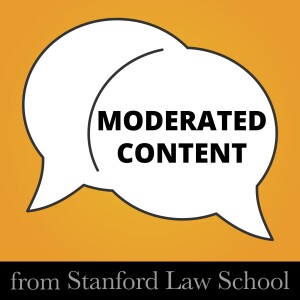
Stanford’s Evelyn Douek and Alex Stamos weigh in on the latest online trust and safety news and developments:
- Reddit CEO Steve Huffman said Elon Musk’s drastic layoffs, cost saving, and price raising measures were an inspiration for him as some of the most active users of his site went on strike, taking some of the largest subreddit forums private in protest against the changes. - David Ingram/ NBC News
- Huffman is trying to force changes against the will of his user base by claiming he represents the “will of the people,” and comparing subreddits moderators, who the company does not pay, to a “landed gentry” that got there first and will pass communities down to their descendants.
Twitter Corner
- Linda Yaccarino published her first memo since starting as CEO, writing that “Twitter is on a mission to become the world’s most accurate real-time information source and a global town square for communication. We’re on the precipice of making history—and that’s not an empty promise. That’s OUR reality.” The emphasis is hers, and this is all a bit… self-refuting. - Alex Heath/ The Verge
- While Linda was writing her memo, Musk was writing tweets about wanting a modern day Roman dictator. How is that for brand safety? - @elonmusk
- Meanwhile, former CEO Jack Dorsey confirms what we all knew: India threatened to shut down Twitter in the country unless it restricted accounts that were critical of the Modi administration. - Shilpa Jamkhandikar, Aditya Kalra, Kanishka Singh/ Reuters
- In response, a government official said Twitter repeatedly violated Indian law during Dorsey’s tenure, but that the company had been in compliance since June 2022, which coincidentally seems to align with Musk’s takeover bid for the company announced in April 2022 and completed in October.
- Spotify continues to let Joe Rogan promote guests who spread misinformation and conspiracy theories about vaccines. Spotify and Rogan signed an exclusivity deal in 2020 that is worth more than $100 million. - Wes Davis/ The Verge
- Meta announced that its “Covid-19 misinformation rules will no longer be in effect globally” and outlined further changes to roll back its policies in published responses to the Oversight Board’s recommendations on updating the rules. - Cristiano Lima/ The Washington Post, Nick Clegg/ Meta
- The announcement came right at the deadline for responding to the Oversight Board’s recommendations and the Board took so long in delivering a decision that the World Health Organization lifted the declaration of a global emergency two weeks later, rendering many of the recommendations moot.
- In other news, the Oversight Board also released its 2022 annual report in which it said that it received nearly 1.3 million appeals and… published 12 decisions. So not only do the cases take forever, but there are very few of them! - Oversight Board
Legal Corner
- Texas Governor Greg Abbott signed legislation that would ban kids under 18 from joining many social media sites without parental content. Kudos to The Verge for covering this! - Makena Kelly/ The Verge
- A Louisiana bill that would similarly require parental consent for users under 18 received a lot more press as it was the foundation for copycat state legislation. - Lauren Feiner/ CNBC, Natasha Singer/ The New York Times
- But the Texas bill has a bunch of other provisions focused on protecting minors from “harmful content.” Tech trade group NetChoice said the law “violates the First Amendment many times over,” so it’s probably just a matter of time until another new social media law faces another tech industry lawsuit.
- The “Florida Digital Bill of Rights” was signed into law by Gov. Ron DeSantis (R). - Rebecca Kern/ Politico Pro, Cristiano Lima/ The Washington Post, Office of Governor Ron DeSantis
- SB 262 includes some basic consumer rights, such as the right to know the information companies have collected about an individual, the right to correct and delete certain information, and the right to limit some data disclosures. However, the measures only apply to the largest tech companies.
- In addressing the most pressing problems for online privacy, the bill also prohibits government officials in the state from making requests for social media companies to remove content, and requires search engines to disclose whether search results are influenced by “political partisanship or political ideology.”
Join the conversation and connect with Evelyn and Alex on Twitter at @evelyndouek and @alexstamos.
Moderated Content is produced in partnership by Stanford Law School and the Cyber Policy Center. Special thanks to John Perrino for research and editorial assistance.
Like what you heard? Don’t forget to subscribe and share the podcast with friends!
More Episodes
The Election on Earth 3817
 2024-11-01
2024-11-01
 2024-11-01
2024-11-01
MC LIVE 9/27
 2024-09-27
2024-09-27
 2024-09-27
2024-09-27
Brazil Bans Elon Musk's X
 2024-09-13
2024-09-13
 2024-09-13
2024-09-13
The Arrest of Telegram's CEO
 2024-08-30
2024-08-30
 2024-08-30
2024-08-30
News Update 8/13: DDoS Attacks Everywhere
 2024-08-14
2024-08-14
 2024-08-14
2024-08-14
The Supreme Court's Netchoice Ruling
 2024-07-02
2024-07-02
 2024-07-02
2024-07-02
The Supreme Court's Jawboning Decision
 2024-06-27
2024-06-27
 2024-06-27
2024-06-27
Moderated Content Book Club
 2024-06-13
2024-06-13
 2024-06-13
2024-06-13
News Update 5/31: Hot Pod Summer
 2024-06-01
2024-06-01
 2024-06-01
2024-06-01
The Supreme Court Hearing on Jawboning
 2024-03-20
2024-03-20
 2024-03-20
2024-03-20
The NetChoice cases reach the Supreme Court
 2024-03-02
2024-03-02
 2024-03-02
2024-03-02
012345678910111213141516171819
Create your
podcast in
minutes
- Full-featured podcast site
- Unlimited storage and bandwidth
- Comprehensive podcast stats
- Distribute to Apple Podcasts, Spotify, and more
- Make money with your podcast
It is Free
- Privacy Policy
- Cookie Policy
- Terms of Use
- Consent Preferences
- Copyright © 2015-2024 Podbean.com






